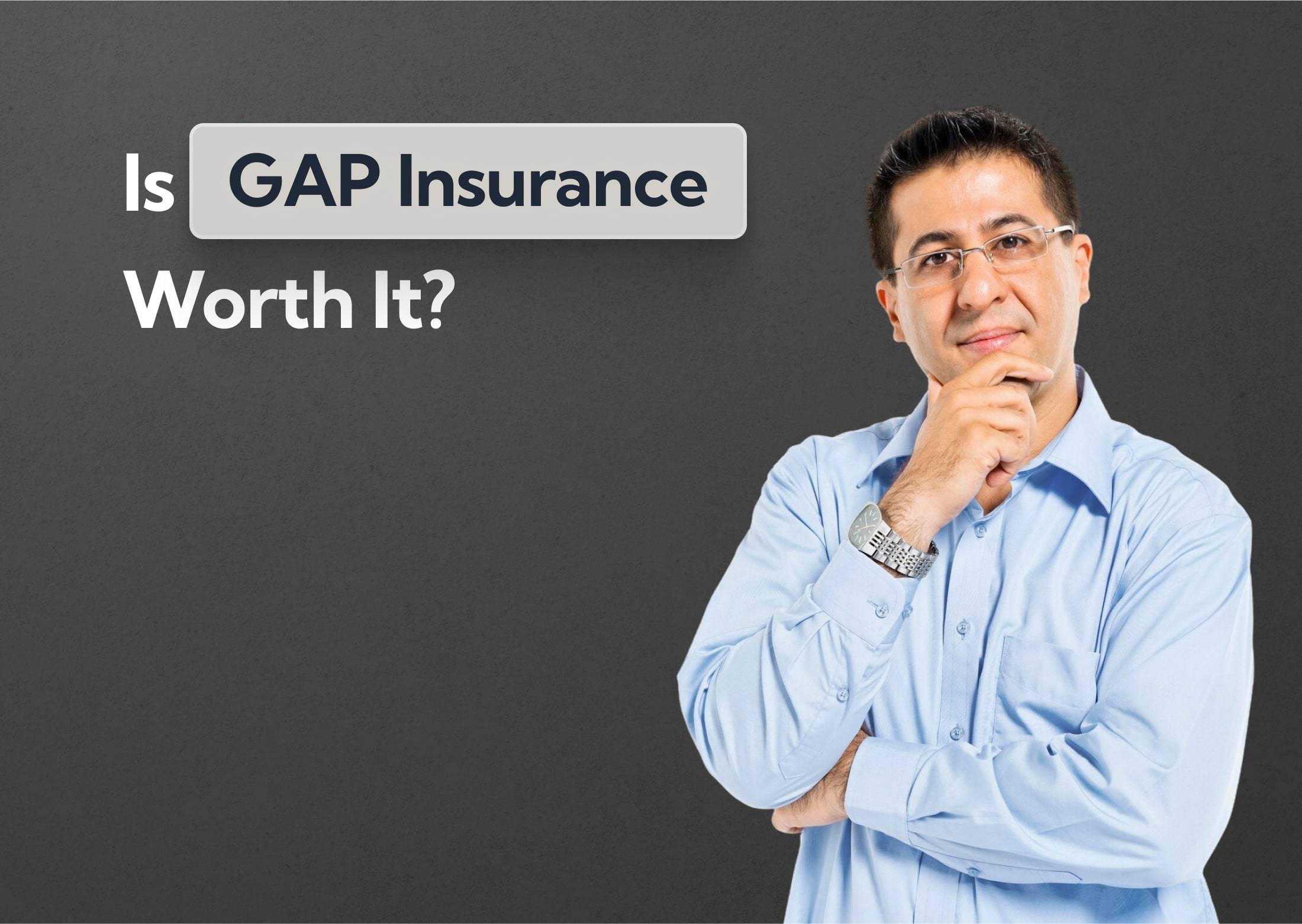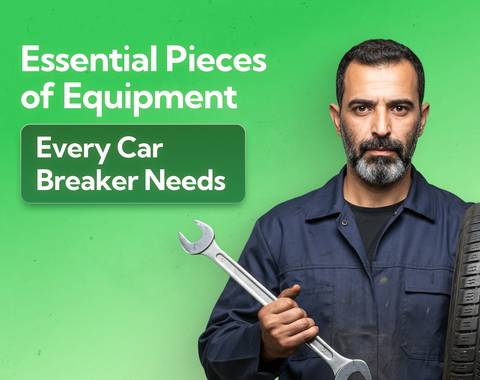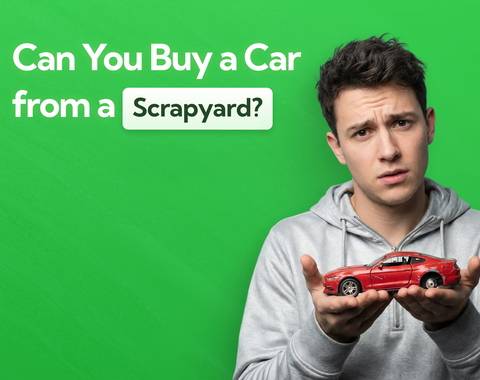Is GAP Insurance Worth It?
GAP insurance can save you thousands if your car is written off or stolen, but most drivers don't realise it isn't always necessary. Whether it’s worth it depends on your deposit, loan terms and how fast your car depreciates. This guide helps you weigh the pros and cons to make the right choice.
Last updated: 3rd October, 2025

Award-winning CEO driving growth and social impact across automotive, recycling, and technology-led enterprise platforms.

Listen to this story
GAP insurance exists to protect drivers from a financial gap (hence the name) that many don’t realise is there. If your car is written off or stolen, your standard insurer will generally pay its current market value, which is far less than what you originally paid or still owe on finance.
For some drivers, that gap means they're upside down on their car finance or have to shell out thousands of pounds extra to replace the car. But for those with large deposits or vehicles that hold their value well, the extra cover might not be worth the cost.
In this guide, we’ll explain when GAP insurance delivers real value and when you can safely skip it.
What's in this article
Gap insurance is designed to work alongside your standard car insurance. It’s additional cover that can assist you financially if something unfortunate should happen to your car. If your new, or even second hand, vehicle is stolen or involved in a traffic accident, resulting in it being written off, then gap car insurance will ensure you don’t face a loss.
You might think your standard car insurance policy covers you in the event of a theft or write-off scenario. In some instances, it will, making gap insurance not appropriate for your needs. However, due to the rapid depreciation of new cars, in many cases your standard car insurance policy will not fully cover you in the same way.
Brand new cars lose a third of their value as soon as you get comfy behind the wheel and pull out of the dealership. After your first year of owning it, your car will drop by around 40 percent in value and after three years this fall is typically around 60 percent. If your car is the subject of a theft or is irreparable and written off after an accident, then your car insurer will usually only pay out a sum of money known as the ‘maximum’ or ‘total loss’ equivalent to the car’s value at the time of claim. This figure is likely to be far less than the amount you originally bought your vehicle for due to its depreciation, which means you’ll be taking a loss. If you want to replace your car with a brand new vehicle, you’ll have to come up with the extra money yourself.
That is, unless you’ve got gap car insurance. Guaranteed Asset Protection (GAP) insurance covers the difference between what your policy will pay out and the original price or value of your stolen or written off vehicle, meaning you’re not running at a loss if worst comes to worst.
There are car insurance policies that cover car buyers for the first, and even in some cases the second, year of ownership, with the offer of a brand new replacement vehicle if it’s stolen or written off. If your policy states this then gap car insurance won’t be worth acquiring, however, there are many instances in which it can be useful. If you’ve ever wondered: ‘is gap insurance worth it?’ then read on for some answers.
Is GAP insurance worth it for a used car?
While more commonly associated with cars that are new, gap car insurance policies are sometimes taken out on used vehicles. The reputation of used cars as old bangers and bone shakers is not one that holds true these days with people often changing their car after just a year. With the many forms of finance agreements, people change their car far more regularly, which means used cars can be found in great condition with very low mileage on the clock.
Used cars don’t depreciate at the same rate as new cars. Whereas after three years a new car will have lost 60 percent of its value, a used car will typically have dropped by only 25 percent in the same amount of time.
As gap car insurance covers the depreciation, and a used car drops in value much slower than a new car, a policy of this kind may not be worth it.
Is gap insurance worth it on a second hand car?
It’s perfectly possible to take out gap car insurance on a second hand car, as stated above, but it won’t be as rewarding in most cases as the amount covered for the value dropped on a new car. Second hand cars that are seven years or over in age won’t be able to secure gap car insurance. At this age, gap car insurers won’t be willing to offer this type of policy.
Return to Value gap car insurance is the type normally suggested to owners of a second hand vehicle. Return to value gap cover pays out the difference between your car insurance policy’s maximum or total loss payment and the value of your vehicle when it was new.
If you bought your second hand car at a discount, then you can profit from this type of gap insurance. For example, if you pay £16,000 for a second hand car with value on the market of £17,000. If your car insurer pays out £10,000 when it’s written off or stolen, you can then claim £7,000 with a return to value gap insurance policy even though you paid £1,000 less when you purchased the vehicle.
What the experts say

Steven Jackson OBE
Is GAP insurance worth it on PCP?
You’ll find specific gap car insurance policies designed to assist with finance deals like PCP (Personal Contract Plan) covering the gap between outstanding amounts owed and the total loss or maximum pay out from car insurers.
If you’ve used a PCP deal to help you buy your car, gap car insurance can be worth looking into. If your car, bought with a finance agreement, is stolen or written off then the insurance payout you receive from regular insurance might not cover your outstanding debt. If this is the case, you’ll either need to keep up your regular monthly payment on a vehicle you don’t get any use from or settle the total remaining on your finance agreement.
Gap car insurance, suited for finance, will cover any difference between your car insurance policy and the total outstanding amount on your agreement. This will allow you to resolve any outstanding finance.
Gap car insurance is particularly useful if your finance deal charges you high rates of interest. It’s also a valid option if your personal contract plan is spread over an extensive period, for example, over five years or if you only used a small deposit when buying the car.
While gap car insurance is worthwhile for most kinds of car finance deals, it’s especially so with PCPs. At the end of a Personal Contract Plan, if you wish to keep the car, you’ll have a large one-off sum to pay, known as a balloon payment. With no extra insurance in place to cover this amount, if your vehicle is written off, you'll have to settle this large outstanding payment yourself, and for a vehicle which has either been stolen or scrapped.
It’s also worth making sure you understand what your car insurance policy covers you for before looking into getting gap insurance. Many new cars come complete with a policy that will offer owners a brand new replacement car if it’s damaged beyond repair and must be written off or stolen in the first, and sometimes second, year of ownership. If you’ve got this kind of cover for your new car then gap car insurance could prove unnecessary.
Other circumstances in which gap car insurance might not be of use to you would be if you can make up the difference in price yourself to purchase a brand new car should something like a theft or a crash happens, or if you don’t require a brand new car and would be satisfied with a like-for-like replacement vehicle.
While gap car insurance is often sold by car dealerships, it’s worth noting that such cover is considerably less expensive if purchased online through brokers and specialty car insurers. While dealerships offer cover for around £300-£375 for three years, online you can find similar gap insurance for between £120 and £150.
Before making a claim on your gap insurance it’s worth checking out your terms and conditions to see if it states any limitations on submitting a claim, what information they might require and what your policy excess is so that you’re fully prepared. It is also considered sound advice to contact your gap insurer before accepting any offered settlements from your car insurer.
Remember that if you’re not satisfied with your car insurer or your gap car insurance provider, you’re entitled to contact the Financial Ombudsman. A term of six months from the point you reach a stalemate with your insurance provider is open to you to contact the Financial Ombudsman Services and register your complaint officially.
About Car.co.uk

Share on
Latest news & blogs










